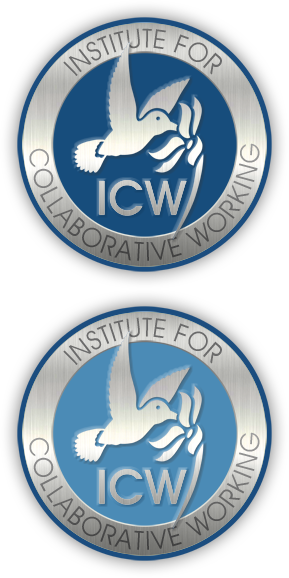 by Trevor Gore, Associate Director, ICW
by Trevor Gore, Associate Director, ICW
7th of April is World Health Day, and the focus this year is "Healthy beginnings, hopeful futures: focusing on maternal health". Now whilst that doesn't sound a promising starting place for an article on collaboration, it did start me thinking...
Pregnancy isn't just about doctor visits - it takes a whole team. Obstetricians, midwives, nurses, pharmacists, and community health workers all play a role in supporting moms before, during, and after birth. Pharmacists, for example, can do more than just fill prescriptions. They can provide prenatal vitamins, vaccines like flu and Whooping cough, and advice on medication safety to keep both mum and baby healthy. They can also screen for conditions like gestational diabetes and high blood pressure-helping at-risk moms get the care they need sooner.
Many women feel unsupported after birth, especially regarding mental health, breastfeeding, and recovery. Closer working between maternity teams, health visitors, community pharmacists, and mental health services to provide more holistic postnatal support, requires a collaborative mindset with the new mother at the centre. The phrase "No decision about me, without me" became a key principle in UK healthcare policy, particularly under the 2010 NHS White Paper, Equity and Excellence: Liberating the NHS. It emphasised patient-centred care, ensuring that individuals are involved in decisions about their treatment and care. In maternity services this means ensuring pregnant women are fully involved in decisions about their birth preferences (e.g., home birth vs. hospital birth, pain relief options), and what level of support is appropriate for them when they return home.
Healthcare doesn't stop at the clinic doors. Strong partnerships with local organisations, NGOs, and community groups can help address things like access to nutritious food, mental health resources, and safe housing. Peer support programs - where experienced moms mentor first-time mothers - can boost confidence and emotional well-being. Because sometimes, you just need to hear "You've got this": from someone who's been there. The number one source of information for the 1st time mum, is still her own mother.
The best healthcare happens when providers learn from each other. Cross-training sessions between doctors, nurses, and pharmacists can strengthen teamwork and improve maternal care and when healthcare professionals understand different cultural perspectives on pregnancy and childbirth, they can provide more personalised, respectful care. Sadly, we have seen too many examples of siloed thinking in maternity, leading to disastrous outcomes for both mother and baby.
Beyond medical care, policies make a huge difference in maternal health. When healthcare providers, policymakers, and public health advocates work together, they can push for: Better maternity leave policies: Increased access to contraception and more funding for maternal health programs. Public-private partnerships can also bring in much-needed resources to improve maternal healthcare services. When healthcare professionals, community leaders, and policymakers collaborate, moms get the care, support, and respect they need for a healthy pregnancy and a bright future. Because when we work together, everyone wins - especially the next generation.
trevor.gore@icw.uk.com

